15 Customer Loyalty Programs For Small Business
Looking to build stronger customer relationships? These 15 small business loyalty program ideas—from tiered perks to gamification and digital rewards—offer creative ways to retain customers, encourage repeat purchases, and drive lasting brand engagement.
On this page
Customers are one of the biggest assets of any business. Be it a small business or a large one, a company’s ability to retain its customers and keep them engaged can make or break it. In this regard, every business needs to successfully develop a connection with its customer base and maintain this connection through different strategies.
While loyalty programs can be a great way to attract and retain customers, many ideas and strategies have become immensely overused. And these overused strategies have the inverse impact of repelling your customers rather than attracting them.
However, businesses nowadays need innovative ideas and creativity in their strategies to meet their loyalty program goals. 76% of Americans report increased spending when they are part of a loyalty program. This is even more crucial if you are a small business just beginning to make a mark in the industry.
The rest need to rethink their strategies and approach. With a creative program that differentiates you from your competitors, you can attract your customers’ attention from the get-go.
So, if you are a small business struggling to get your creative juices flowing, here are 7 ideas on loyalty programs for small businesses that can help you achieve the desired effect.
Why are customer loyalty programs important for small businesses?
Customer loyalty programs are especially important for small businesses because they help level the playing field with larger competitors while fostering meaningful relationships with customers. Here’s why they matter:
1. Encourage repeat purchases
Loyalty programs give customers a reason to come back by rewarding them for ongoing engagement and purchases. This helps boost customer lifetime value and supports steady revenue.
2. Strengthen customer relationships
With personalized perks and thoughtful touches, small businesses can create a deeper emotional connection that makes customers feel appreciated and seen.
3. Improve retention and reduce churn
It’s more cost-effective to keep an existing customer than to win a new one. Loyalty programs help retain customers by recognizing their commitment.
4. Boost word-of-mouth and referrals
Happy, loyal customers are more likely to recommend your business. Referral rewards make it easier for them to spread the word and bring in new buyers.
5. Gather insights to improve your service
Loyalty programs help collect data on customer preferences and buying behavior, giving you the insights needed to improve offerings and marketing.
6. Stand out from competitors
A creative loyalty program sets your business apart. Offering unique perks or personalized rewards gives customers more reason to choose you over others.
7. Drive engagement during slower periods
Special loyalty promotions can help bring in sales during off-peak times and keep customer interest alive year-round.
15 Loyalty programs for small businesses that work wonder
Here are 7 creative ideas for you to consider when designing your loyalty program. Depending on the industry you operate in and the kind of services you offer, you may adopt variations of these ideas to provide benefits that are sure to engage and attract your customers.
1. Award maximum points for spending
One interesting strategy you can implement is to award points based on the amount the customer has spent. This means that you can establish different points that the customer will unlock when crossing certain milestones in terms of the amount they spend.
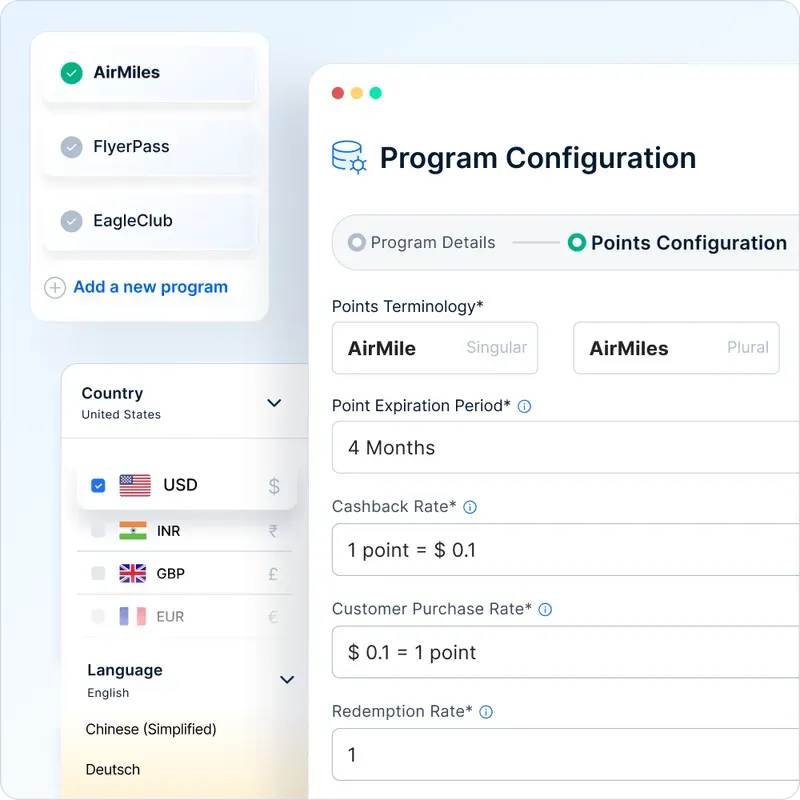
You can set this amount per transaction or cumulatively, with the total value of purchases made till a particular time need to reach a milestone amount. Accordingly, you can provide perks by offering gifts or benefits depending on the milestones crossed. Alternatively, you can also credit customers’ accounts with points that they can redeem through their future purchases.
2. Run festival or event-based offers and programs
Festival-based and event-based promotions are common but incredibly successful strategies to keep your customers satisfied when implemented properly. While sales and promotions during festivals and events are given, you can provide special offers only to those who are a part of your loyalty programs, such as free samples or combo offers. These events can be national holidays, local and regional festivals, company anniversaries, etc.
Furthermore, you can personalize this strategy by further providing special offers and promotions to customers on their special days, such as their birthdays or anniversaries. This can lead to greater customer satisfaction and can not only help retain your customers but also compel them to buy more on their special days to enjoy their customized offer.
3. Personalized touchpoints
Many brands today are so focused on referral programs and conversion rates that they often overlook the chance to create meaningful, personal connections with customers. A great example of standing out is adding personal touches during key moments like onboarding or offboarding, think handwritten notes, sending birthday flowers, or gifting a book tailored to the customer’s interests.
Most loyalty programs are transactional, but small businesses have the unique advantage of offering something truly heartfelt because they know their customers well. When offering perks, it’s important to align them with customer interests, and when using points, they should be redeemable at places customers already love.
Personalization backed by thoughtful data use goes a long way in improving retention and engagement.
4. Social cause partnerships
Brands can strengthen loyalty by turning customers into partners in social good. By identifying causes that resonate with their audience and actively involving customers in initiatives, companies can create a deeper sense of purpose. It’s equally important to show customers the tangible impact of their contributions, helping them feel connected to a larger mission.
5. Gamification
Incorporating gamification — such as points, scores, or digital badges — adds a layer of fun to the customer experience. Rewarding customers for reaching milestones or creating exclusive tiers or clubs for top customers fosters a sense of achievement and belonging.
These tactics make loyal customers feel valued and recognized, driving stronger emotional connections to the brand.
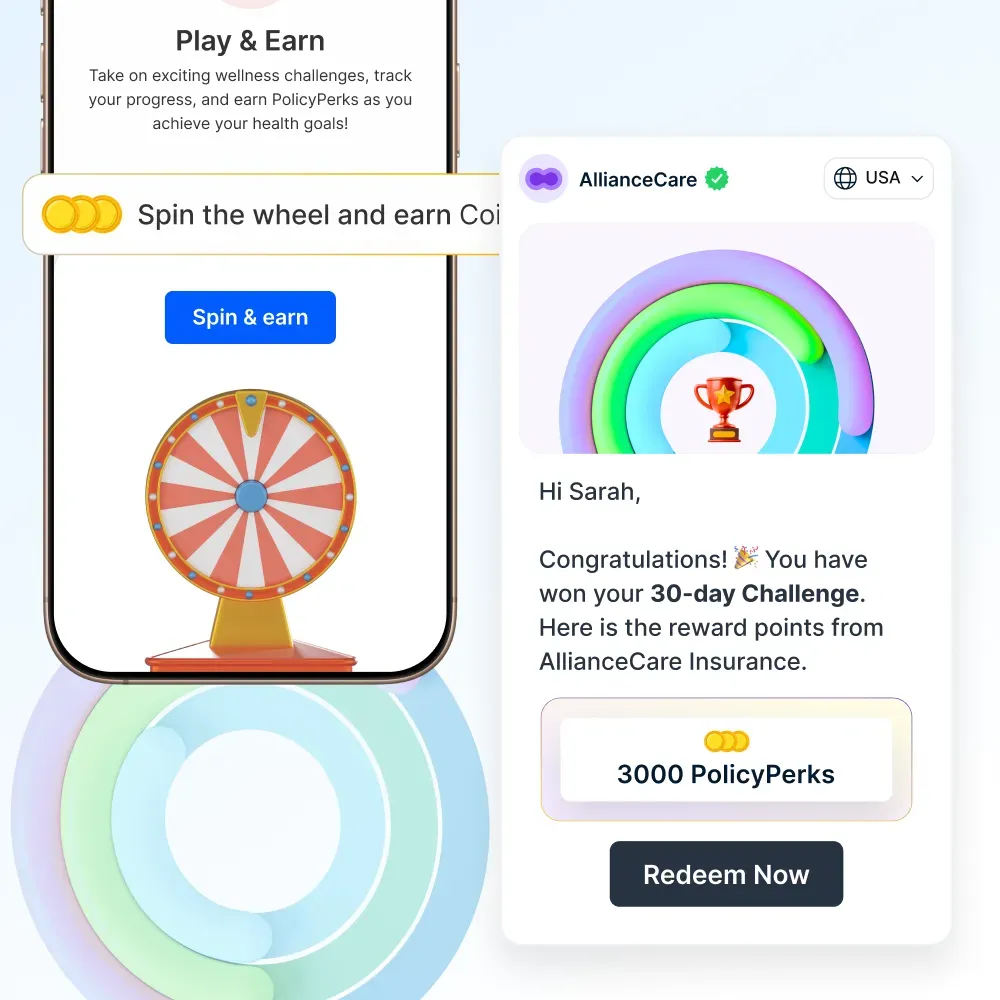
6. Referral programs
A customer-to-prospect referral system is one of the most cost-effective loyalty strategies, especially for small and medium-sized businesses. Customers often make the best brand advocates because they deeply understand the products and services.
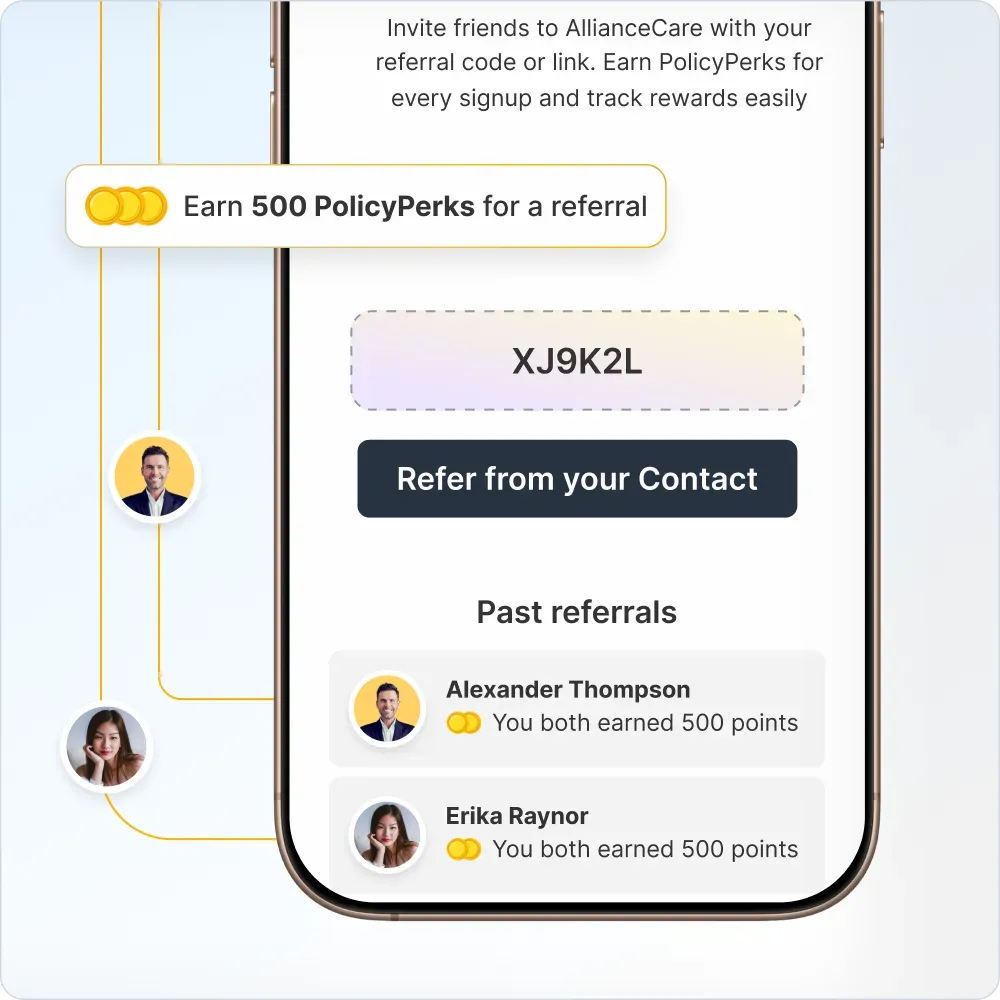
When combined with a word-of-mouth strategy amplified by social media, referral programs can significantly boost both customer acquisition and loyalty.
7. Give first-time purchase discounts
Attracting new customers is as important as retaining your old and loyal ones. So, to attract new customers to continually use your services, you can provide special first-time purchase benefits and discounts.
In the case of online purchases, this can be in the form of a common and generic discount coupon upon signing up, while customers preferring in-store purchases can be provided with the benefit of providing their number and enrolling for the loyalty program.
This can also add them to the sales funnel, which will then allow you to send offer messages on every single event-based or festival-based special promotion.
8. Introduce VIP perks
VIP perks are a time-based or value-based benefit that you can provide to your loyal customers. Specifically, your loyalty program can offer exclusive benefits and offers once the customer has reached a certain number of transactions or a certain value of cumulative purchases.
You can further set a time range, such as a specific number of purchases or purchase value reached within a year to be considered a VIP as per the program. For such VIP customers, you can provide perks such as free upgrades, priority service, early access to sales, or customized gifts and hampers.
9. Sell store-exclusive freebies
Loyalty programs for small businesses don’t only need to be in the form of providing benefits. You can also provide loyalty benefits in the form of store-specific merchandise that is not available anywhere else. These merchandise pieces may include the brand logo, the name of a particular campaign that is currently going on, quotes, or any other such customized concept.
You can also make these freebies limited edition, including strategies such as only the first X number of customers getting the product, or the products being available only for a limited time, such as during a festival or event.
Furthermore, you can also combine the idea of offering VIP perks with this strategy by providing these freebies to only those who have reached a certain milestone in terms of the number of transactions or the cumulative value of purchases made within a specific time range. This will make other customers purchase more from your store so they can get those exclusive perks for themselves.
10. Host feedback rewards once a month
Feedback from customers is an effective way to enhance your services and optimize them as per what your customers want. However, most customers may not feel inclined to share their feedback as it takes time and does not provide them with any immediate benefit. In order to combat this, you can conduct incentivized feedback sessions for your loyalty program customers.
You can offer products, benefits, or discounts in exchange for detailed and honest feedback. This feedback can be in the form of in-store surveys with discount coupons awarded or surveys sent over the mail to the customers with gift cards and coupons awarded on completion.
11. Return rewards
Returns can place a significant burden on brands and contribute to environmental strain. To address this, brands can reward customers who choose more sustainable return options.
For example, offering loyalty points to customers who use package-free, or label-free return methods can encourage eco-friendly behavior. This approach not only reduces mail-in returns and carbon emissions but also strengthens customer engagement by aligning rewards with shared environmental values.
12. Tiered benefits
Brands can strengthen customer loyalty by introducing a tiered system that rewards customers based on their level of engagement or spending. This approach offers public recognition and a range of benefits, such as early access to sales, exclusive products, or special services.
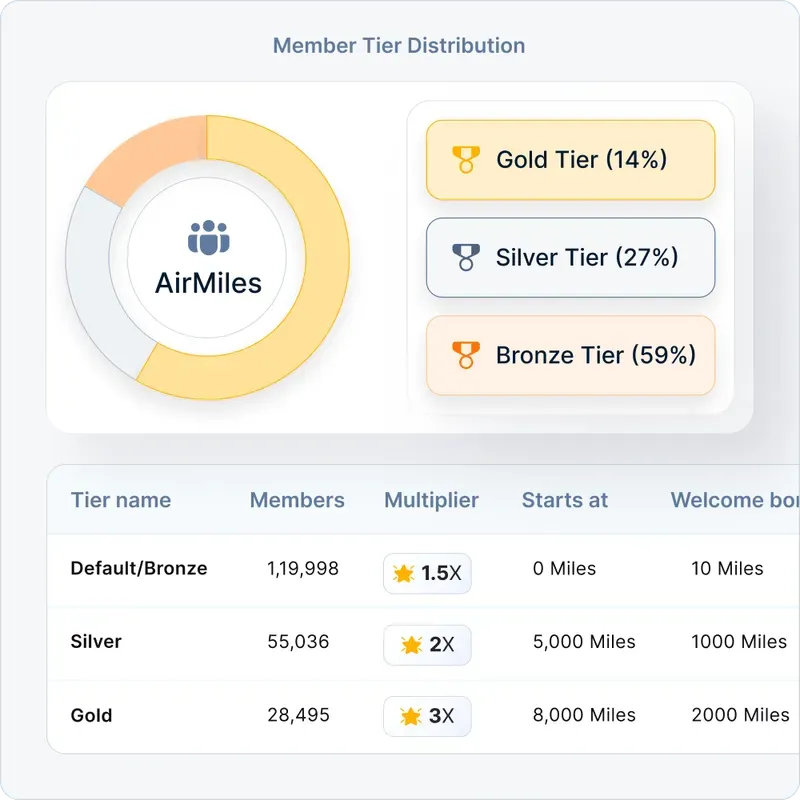
Much like event sponsorship models, where contributors are classified into bronze, silver, or gold levels, tiered loyalty programs give customers the opportunity to unlock progressively valuable rewards as they deepen their relationship with the brand. This not only encourages repeat purchases but also makes customers feel appreciated and recognized.
13. Knowledge exchange programs
Small businesses can enhance customer loyalty by implementing a knowledge exchange program. In this model, customers earn points by providing insights, feedback, or suggestions on products, which they can later redeem for exclusive experiences or special discounts. This approach not only strengthens customer engagement but also offers businesses valuable input that can help improve products, services, and overall growth strategies.
14. Community rewards programs
A community rewards program is an innovative loyalty initiative that small businesses can adopt to strengthen local connections and partnerships. By collaborating with nearby businesses such as coffee shops, fitness centers, or retail stores, they can offer joint rewards or exclusive discounts to shared customers.
This approach not only encourages customer loyalty but also fosters a sense of community and supports the growth of local businesses.
15. Utilize digital loyalty platforms
For many businesses, especially in the B2B space, one common challenge is that their own products or services may not be well suited as loyalty rewards. This is where partnering with a digital loyalty platform becomes a smart solution. By using a platform that offers a broad range of personalized and flexible rewards, businesses can still deliver memorable loyalty experiences tailored to the needs and preferences of their audience.
Loyalife is a powerful digital loyalty platform designed to help companies automate, personalize, and elevate their reward programs. With features like AI-driven reward automation, Loyalife enables brands to offer a diverse catalog of rewards that customers can choose from themselves, creating a sense of choice and control that enhances satisfaction.
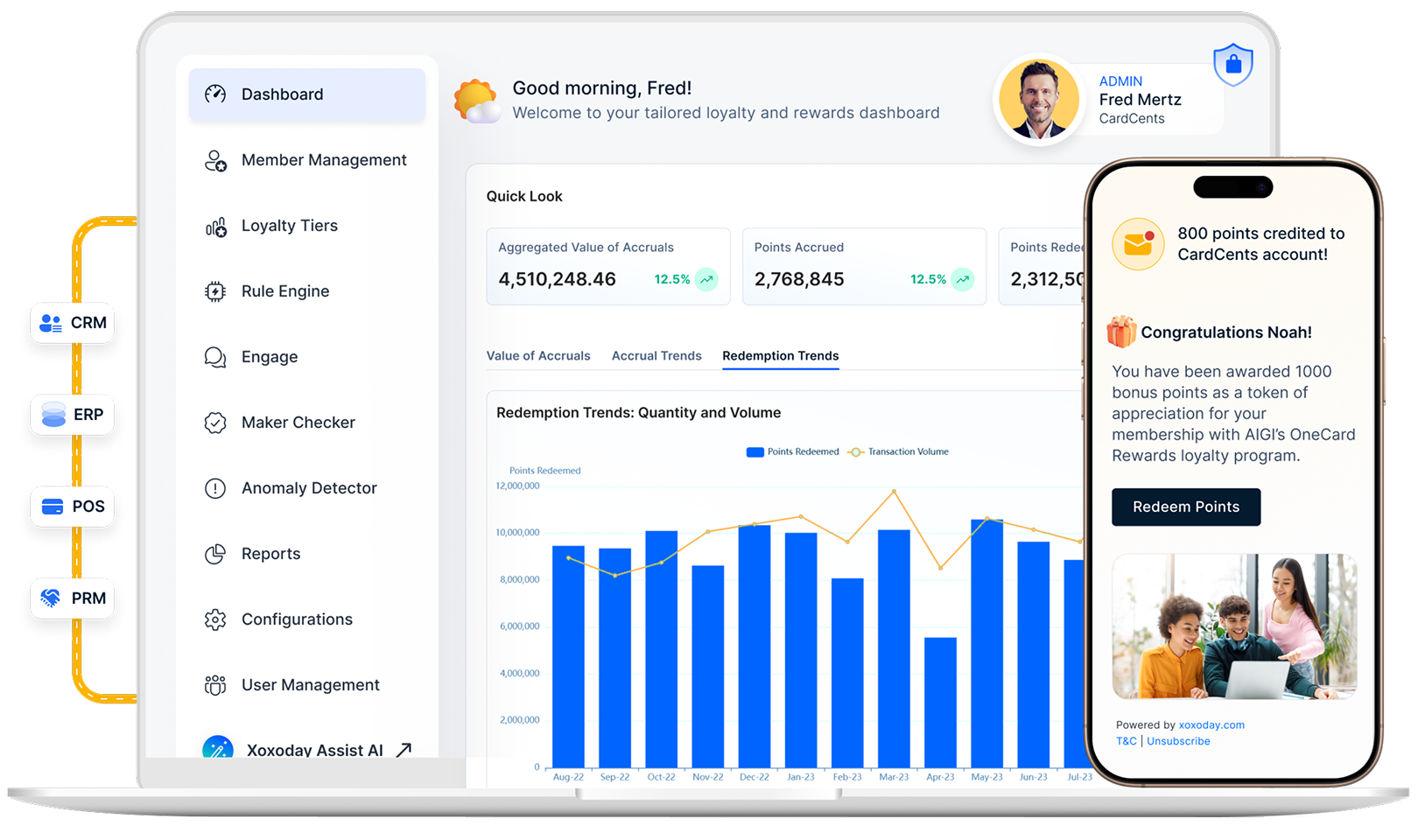
What’s more, Loyalife seamlessly integrates with existing CRM and automation tools, making it easy for businesses to track, measure, and optimize loyalty campaigns in real time. This ensures not only a smooth customer experience but also clear insights into program performance and impact.
How do you know if your loyalty program is working?
Loyalty programs can be very effective in changing the very presence and image of your brand. But you can only find that out if you monitor how customers are reacting to it.
So, after you have put your creative loyalty program strategy into action, you need to keep an eye on the statistics and metrics to find out whether you have been successful or not.
And for this, these 3 metrics can help you out:
1. Customer retention rate
Customer retention rate is probably the easiest and most effective metric that can help you assess how effective your loyalty program has been. This is especially true since the sole aim of such programs is to retain customers. In this regard, if you see yourself investing a huge chunk of money in the program but your customers are not making repeat purchases, then you can be sure that your chosen program is not the right choice.
Conducting regular checks regarding this metric, such as monthly or quarterly, can help you implement remedial strategies promptly for the best impact.
2. Customer churn rate
Customer churn, just like customer retention, must be tracked to see how many customers have left your side. This, together with the retention rate, will help you maintain an accurate monthly track of how your consumers respond to your loyalty programs.
So, if your retention rate is decreasing while your churn rate is increasing, you can see that you need to change your strategies right away.
3. Customer satisfaction index
Lastly, you can find out directly from your customers whether your loyalty programs have been successful or not. You can gain these insights from surveys and other feedback methods, such as tracking reviews on public platforms and discussions on social media.
If you observe a high customer satisfaction index, then ideally it coincides with a high retention rate as well. However, if the customers seem satisfied but still the churn rate is high, then you may need to change your strategies accordingly as well.
Conclusion
Loyalty programs are a powerful way to attract new customers while strengthening relationships with your existing ones. For small businesses, the key lies in using creative, thoughtful ideas that set you apart and deliver real value from the start. But launching a program is just part of the journey — it’s equally important to continuously track performance, gather insights, and evaluate how well your efforts resonate with your audience.
Loyalife is designed to help small businesses simplify and scale loyalty strategies without overwhelming resources or complex systems.
Why Loyalife works for small business loyalty programs:
- Easy to launch and manage: Loyalife’s intuitive interface makes it simple to design and roll out loyalty campaigns—even without a dedicated marketing team.
- Customizable rewards and campaigns: Whether you’re offering cashback, points, or exclusive perks, you can tailor every program to match your brand and customer preferences.
- Automated workflows: Save time with automated point tracking, tier upgrades, and reward distribution—no manual spreadsheets needed.
- Real-time insights: Track what’s working (and what’s not) with built-in analytics that help you fine-tune your program for better results.
- Affordable and scalable: Start small and grow your program as your business expands. Loyalife’s flexible setup supports your needs at every stage.
- Integrated experience: Seamlessly connects with your POS, CRM, or e-commerce tools to ensure a consistent experience for your customers.
Schedule your demo with Loyalife today and discover how to turn everyday customer interactions into long-lasting relationships.


















